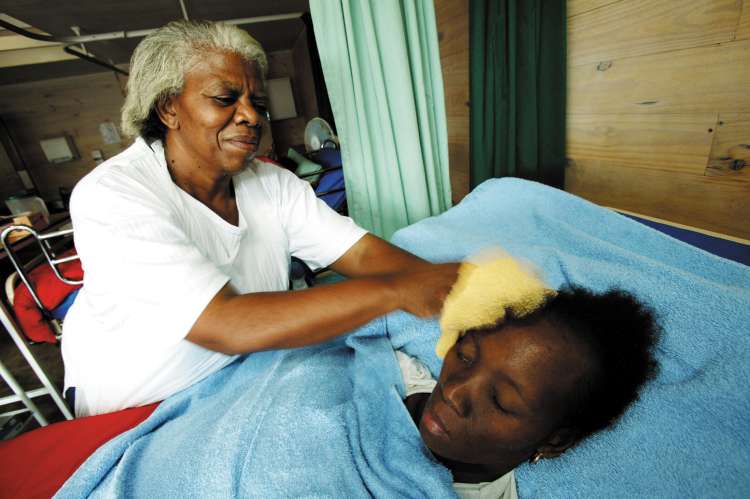Circumcision 'is the best weapon in fight against Aids'

Your support helps us to tell the story
From reproductive rights to climate change to Big Tech, The Independent is on the ground when the story is developing. Whether it's investigating the financials of Elon Musk's pro-Trump PAC or producing our latest documentary, 'The A Word', which shines a light on the American women fighting for reproductive rights, we know how important it is to parse out the facts from the messaging.
At such a critical moment in US history, we need reporters on the ground. Your donation allows us to keep sending journalists to speak to both sides of the story.
The Independent is trusted by Americans across the entire political spectrum. And unlike many other quality news outlets, we choose not to lock Americans out of our reporting and analysis with paywalls. We believe quality journalism should be available to everyone, paid for by those who can afford it.
Your support makes all the difference.The billions of dollars spent on Aids prevention programmes based on HIV vaccines, wide-scale testing and the promotion of condoms or sexual abstinence have turned out to be less effective than a simple surgical operation to remove the foreskin.
Some of the world's most distinguished scientists have warned that the "central pillars" of HIV prevention – from condom use to HIV vaccines – have crumbled in the worst-affected regions of sub-Saharan Africa.
On the 25th anniversary of discovery of the virus, the researchers warned that a quarter of a century of research into HIV vaccines and anti-viral creams, along with health programmes, have all failed to stem the Aids epidemic in Africa.
The scientists said there was an urgent need to reappraise existing strategies by looking at how to expand male circumcision in sub-Saharan Africa, where the heterosexual Aids epidemic has spilled into the general population, rather than being confined to high-risk groups, such as sex workers and their clients.
Daniel Halperin, of the Harvard School of Public Health, one of the co-authors of the study, said the time has come to look at male circumcision as the most important tool there is to limit the spread of HIV within the worst-affected regions of the world.
"Despite relatively large investments in Aids prevention efforts for some years now, including sizeable spending in some of the most heavily affected countries such as South Africa and Botswana, it's clear that we need to do a better job in reducing the rate of new HIV infections," said Dr Halperin. Less than 1 per cent of the funds spent by the UN programme has gone on male circumcision yet the other, more expensive strategies have failed to live up to expectations. "We need a fairly dramatic shift in priorities, not just a minor tweaking," added Dr Halperin.
Cutting off the foreskin has been shown in several studies to curb the spread of HIV through heterosexual contact by reducing the risk of infection. In men, the risk falls by 60 per cent, but even in women there is a knock-on effect with fewer infected men in the general population. "Over time, male circumcision, which has been called a 'surgical vaccine', would probably protect more women, albeit indirectly, than nearly any other achievable HIV prevention strategy," the scientists say in their study, published in the journal Science.
More than 45 studies over the past 20 years, including three large clinical trials in Africa, have shown the benefits of the operation in reducing the risk of infection among heterosexual couples. "Unlike most other interventions, male circumcision is a one-time procedure that confers lifelong protection. Modelling suggests that male circumcision could avert up to 5.7 million new HIV infections and three million deaths over the next 20 years in sub-Saharan Africa, many of these among women," said the scientists.
The use of condoms among heterosexual couples in Africa is not as high as in other countries such as Thailand, where the heterosexual HIV epidemic was largely confined to sex workers.
In western Africa, were male circumcision is high for cultural and religious reasons, the prevalence of HIV is low and controlled trials have shown that the operation can stem the rate of infection, said Professor Malcolm Potts, of the University of California, Berkeley. "It is tragic that we did not act on male circumcision in 2000, when the evidence was already very compelling," he said. "Large numbers of people will die as a result of this error."
Join our commenting forum
Join thought-provoking conversations, follow other Independent readers and see their replies
Comments